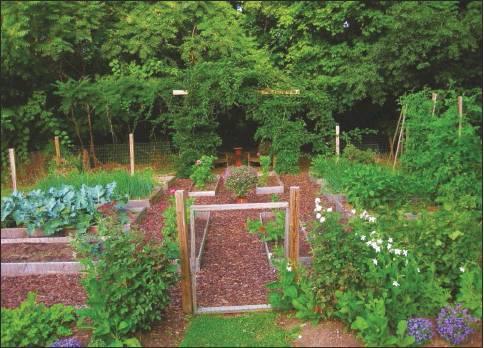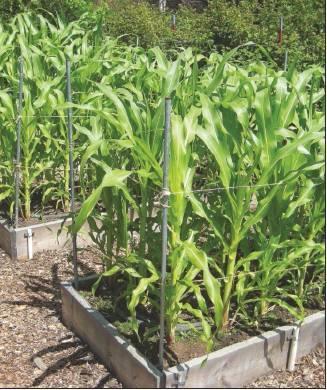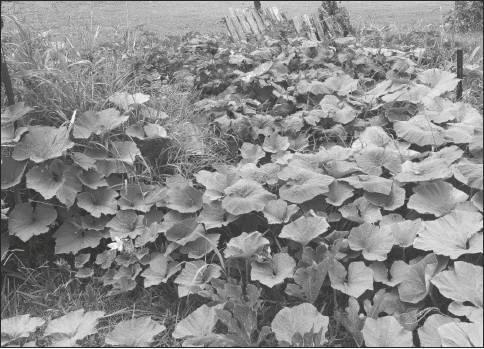Getting into Gardening
Ah, summer, what power you have to make us suffer and like it!
It’s July and, as the old song goes, the living is easy. Sure, there are little chores to be done, like watering of course; and some weeding, but mostly this is an expectant time with bountiful harvests of greens, beans, tomatoes, peppers, onions, garlic, cucumbers, and… well, the list goes on and on. In my garden the summer squash plants are in full blossom and have been setting fruit for some time now. I harvested a basket full of corn a few weeks ago and my next corn crop is over four foot high and about ready to be harvested. My winter squash and Malabar spinach plants are really starting to show some muscle and are just itching to take over the garden. Tomato blossoms are generous on every vine, and each meal we have is full of fresh, healthy, home grown bounty. What a great month July truly is, not just because my birthday comes in July either, but that is good too.
It’s a good time to spend a moment or two with your garden doing nothing but taking stock. How is your garden plan looking now that things are well on their way? What pest problems are you having? How does the weather look for the rest of the month? Hot? Are you well mulched? How is the planting arrangement, should you make changes next season?
Mostly though, this is just a delightful time to sit back and look at the fruits of our work. Things are most likely just past the neat and orderly stage, but everything should be robust and green and wonderful. It is at about this time that I start thinking deeper (gardens do that to me). Where did the craft of doing this come into my life? How is it that with each passing year I learn more and more about raising vegetables? How well am I doing passing that knowledge on to children, family, and friends? And how important are those friends, children, and family, to what I do and learn? Am I doing well or am I messing things up?
There is a famous quote from author Jodi Picoult that I like, “Everyone thinks you make mistakes when you’re young. But I don’t think we make any fewer when we’re grown up.” I agree with Jodi, and I think this is especially true when it comes to gardening.
My younger brother, a fellow who was just as exposed to gardening growing up as I was but never got the bug, never had a garden plot of his own, finally has shown some interest in gardening. He put some marigolds in pots last summer and marveled at the results. He loved how just a few flowers on the porch could make things so much more inviting. Once I taught him what deadheading was, he had blooms all summer long. Even this, the simplest of advice, shows each of us can make a difference, no matter how small, in someone else’s life. This year, little brother bought several more pots and even some long, rectangular wooden boxes and started growing vegetables. He’s out of town for a long holiday weekend and asked if I would water while he was away. I was happy to oblige of course, as watering is terribly critical in container growing. I must admit however that I was really looking forward to having a chance to nose around a bit and see what he was getting up to in his garden.
I liked lots of what I saw, especially the success he was having growing okra in pots. I had never thought of pots for okra, but I’ll be doing this next season! Some of his mistakes reminded me of the long learning process I went through, and how important mistakes were to the process. As self-help gurus, optimistic sorts, and most importantly (to me any way) my great grandmother frequently tell us: they are not mistakes; they’re opportunities.
My brother is growing Chinese yard long (sometimes called asparagus) green beans from seed I had given him, and they are well up and producing but not as vigorously as they ought. They are planted in the rectangular boxes he has set against his chain link fence. This is good, as they are fierce climbers, but the leaves are all yellow, some of them with brown around the edges, and some apparently attacked by insects, a plant that has stress issues can become easy prey to all kinds of pests. A quick check of his soil and a glance through his remaining gardening supplies suggested the problem. He’d planted them in “composted” cow manure, using nothing else to provide drainage and nutrient balance. Watering left the soil mucky on top. And too much nitrogen was causing the burning, the soil was too “hot”. It would have been much better for the plants to have been planted in real compost with only a fraction of the composted manure worked in. I also found that he had planted a pot full of lettuce using the same cow manure. None of the seeds germinated, most likely a result of too much nitrogen again.
Then there is his pumpkin patch. He had apparently bought starts at the nursery and planted them in topsoil that had come from a red and white bag purchased at one or another big box store. The soil surface was hard and compacted, when watered this life-giving liquid just collected on the surface and never managed to penetrate that hard-crusty layer, let alone seep down to any depth. The pumpkin transplants hadn’t had a chance. I didn’t see him planting them, but it was clear he hadn’t done a very good job of it. Maybe he had tried to remove all the soil from around the roots, or maybe he hadn’t loosened up what soil there was around the starts, or perhaps he’d just tamped too hard after putting the transplants in that lousy soil. I am not really sure, but the results were the same.
So, I am looking forward to my brother’s return and getting an opportunity to give him some nice, friendly, older brotherly and yes, sage advice, about the importance of soil, both its content and its drainage properties. I’m looking forward to discussing real compost with him and why it is what is best for his plants. And when I do, (just so I do not seem like a complete jerk) I will help him plant another container, maybe one with greens, or possibly some other late-season crop, and together we will prepare it just so, with good composted rich soil, good drainage at the bottom, and good planting technique. Learn by doing, that’s what my great grandmother always said, each life and each garden is made up of mistakes and learning, waiting and growing, practicing patience and being persistent. That is what grandma taught me and now it is time for me to pass that along.
Thanks Grandma, I love you and I miss you. As long as I get to garden and share what I know about gardening, I know my Grandma will be always be with me.






